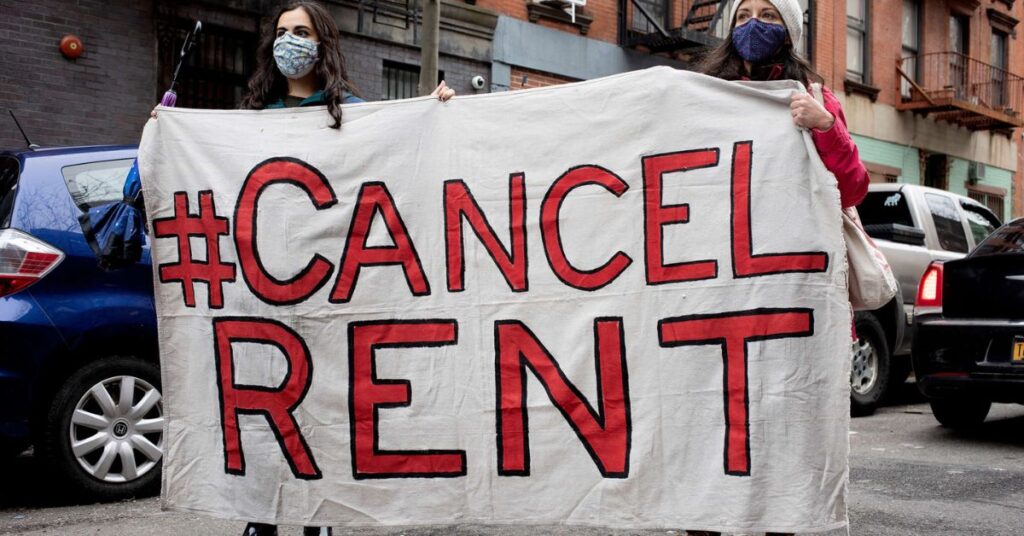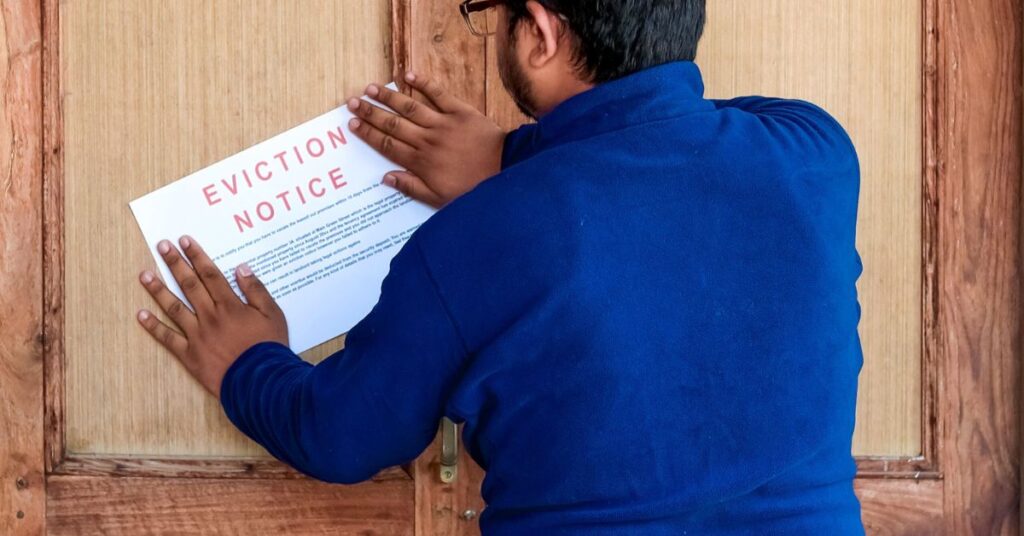Can a landlord withdraw a notice to quit. This question often sparks uncertainty among tenants facing the daunting prospect of eviction. In the realm of rental agreements, clarity and awareness are paramount.
Understanding the intricacies of landlord-tenant dynamics is essential for navigating the complexities of renting. Let’s delve into this crucial topic to shed light on the rights and responsibilities of both landlords and tenants in the context of withdrawing a notice to quit.
In the intricate web of landlord-tenant relationships, the issuance of a notice to quit can send ripples of apprehension through the hearts of tenants. However, amidst the uncertainty, it’s crucial to explore the nuances surrounding the withdrawal of such notices.
Rental awareness empowers both landlords and tenants to navigate the legal intricacies of leasing agreements with confidence and clarity. Can a landlord retract a notice to quit. This question lies at the heart of our exploration into the dynamics of rental agreements.
Legal Framework And Specific States Jurisdiction
In the United States, landlord-tenant laws vary significantly from state to state. While there are overarching federal laws that provide guidelines, each state has its own statutes and regulations governing rental agreements and eviction procedures.
For example, in some states, landlords may have the right to withdraw a notice to quit under certain circumstances, while in others, such actions may be more restricted.
Understanding the specific laws and regulations in the state where the rental property is located is crucial for both landlords and tenants to ensure their rights are protected and obligations are met. Therefore, consulting legal resources and seeking advice from professionals familiar with state-specific laws is essential for navigating landlord-tenant relationships effectively.
2. Can a Tenant Withdraw Their Notice to Vacate? Yes!

Absolutely! In the realm of landlord-tenant dynamics, it’s not uncommon for tenants to experience a change of heart after issuing a notice to vacate. Fortunately, in many cases, tenants do have the option to withdraw their notice to vacate.
However, it’s essential to understand that the ability to retract such notices may be subject to specific terms outlined in the rental agreement or governed by state laws. Tenants should carefully review their lease agreement and consult with their landlord to determine the procedures and implications of withdrawing a notice to vacate.
Effective communication and understanding between landlords and tenants can help facilitate a smooth transition and ensure a positive rental experience for both parties involved.
2.1 Reasons for Tenant Withdrawal
When tenants consider withdrawing their notice to vacate, various reasons may prompt this decision. Firstly, unforeseen changes in personal circumstances, such as securing alternative housing or resolving financial difficulties, could lead tenants to reconsider their initial decision to move out.
However, positive resolutions to issues that initially prompted the notice, such as repairs being completed or concerns being addressed by the landlord, may alleviate the need to vacate. Moreover, tenants may find that renegotiating lease terms, such as rent adjustments or lease extensions, better aligns with their current situation, prompting them to withdraw their notice to vacate.
Ultimately, tenants withdrawing their notice often stems from a desire to maintain stability, address concerns, or explore alternative solutions that allow them to remain in their current rental property.
2.2 Tenant Rights and Obligations
Tenants withdrawing their notice to vacate must be cognizant of their rights and obligations within the landlord-tenant relationship. Primarily, tenants possess the right to occupy the rental property for the duration of the lease agreement, provided they adhere to its terms and fulfill their financial obligations, such as paying rent on time.
However, tenants are also obligated to maintain the property in a reasonably clean and safe condition, report any maintenance issues promptly, and respect the rights of their neighbors. When withdrawing a notice to vacate, tenants should communicate their decision promptly and transparently with the landlord, ensuring mutual understanding of any revised lease terms or agreements.
However, tenants should familiarize themselves with applicable state laws governing lease termination and eviction procedures to safeguard their rights throughout the rental process. By upholding their rights and fulfilling their obligations, tenants can foster a harmonious landlord-tenant relationship and enjoy a positive renting experience.
3. Worst case scenario: A Notice of Motion
In the realm of landlord-tenant disputes, a worst-case scenario for a tenant may involve receiving a Notice of Motion from their landlord. This legal document typically signifies the initiation of formal legal proceedings, often related to eviction or lease termination.
Upon receiving a Notice of Motion, tenants should be aware that the landlord is seeking legal remedies through the court system, which could potentially lead to the loss of their tenancy rights and eviction from the rental property. It’s essential for tenants facing this situation to respond promptly and seek legal advice to understand their rights and options for defense.
A, tenants should carefully review the Notice of Motion to ascertain the specific grounds and allegations cited by the landlord, enabling them to prepare a comprehensive response and potentially negotiate a resolution outside of court. By proactively addressing the situation and seeking appropriate legal guidance, tenants can mitigate the risks associated with receiving a Notice of Motion and navigate the legal process effectively to protect their rights and interests as tenants.
What are the rights of tenants in the USA?

Tenants in the United States are afforded several rights designed to protect their interests and ensure fair treatment in landlord-tenant relationships. Some of the key rights of tenants in the USA include:
Right to a Habitable Dwelling
Tenants have the right to live in a rental property that meets basic standards of habitability, including adequate heating, plumbing, and structural integrity.
Right to Privacy
Right to Non-Discrimination
It is illegal for landlords to discriminate against tenants based on protected characteristics such as race, religion, national origin, sex, familial status, disability, or other factors outlined in fair housing laws.
Right to Repairs and Maintenance
Landlords are generally responsible for maintaining the rental property in a habitable condition and making necessary repairs to keep it safe and functional. Tenants have the right to request repairs promptly and may have legal remedies if the landlord fails to address maintenance issues.
Right to Security Deposit Return
Upon moving out, tenants have the right to receive the return of their security deposit, minus any allowable deductions for damages beyond normal wear and tear. Landlords must typically provide an itemized list of deductions within a specified timeframe.
Right to Fair Housing Practices
Tenants have the right to fair treatment in housing transactions, including equal access to housing opportunities and protection from discriminatory practices in rental advertising, application processes, and lease agreements.
Right to Legal Recourse
If a landlord violates the terms of the lease agreement or fails to uphold their legal obligations, tenants have the right to pursue legal recourse through civil courts to seek remedies such as rent abatement, repair orders, or compensation for damages.
Right to Due Process
In the event of eviction proceedings, tenants have the right to due process, including proper notice and the opportunity to present their case before a judge. Evictions must be carried out following state law, and tenants may have defenses available to contest the eviction.
Notice to quit from landlord
| Topic | Notice to Quit from Landlord |
| Definition | A legal document issued by the landlord to notify the tenant of the termination of their tenancy and demand they vacate the premises within a specified period. |
| Reasons | Non-payment of rent, lease violations (e.g., unauthorized pets, subletting without permission), expiration of lease term, failure to comply with rental agreement terms, property damage, illegal activities on the premises, or the landlord’s desire to use the property for personal or business purposes. |
| Types of Notices | 1. Pay or Quit: Demands the tenant to pay rent owed within a certain period or vacate the premises. <br> 2. Cure or Quit: Requires the tenant to correct lease violations or breach of terms within a specified timeframe or vacate. <br> 3. Unconditional Quit: Terminates the tenancy without an opportunity to remedy the issue, usually for severe violations or repeated breaches of the lease agreement. |
| Tenant’s Response | 1. Review the notice thoroughly to understand the grounds for termination and the deadline for vacating the premises. <br> 2. Assess the validity of the notice and determine if any defenses or counterclaims exist (e.g., landlord’s failure to maintain habitability). <br> 3. Depending on the reason for the notice, tenants may have options to remedy the issue, negotiate with the landlord, or contest the eviction in court. |
| Legal Rights | Tenants have legal rights, including: <br> 1. Right to due process, including proper notice and the opportunity to respond or contest the eviction in court. <br> 2. Protection against retaliation for asserting their rights or reporting code violations. <br> 3. Right to habitable living conditions and maintenance of the rental property by the landlord. <br> 4. Protection against discrimination based on race, color, religion, sex, national origin, familial status, or disability. |
| Resources | 1. Legal assistance from tenant rights organizations or legal aid clinics. <br> 2. Reviewing state and local landlord-tenant laws to understand rights and obligations. <br> 3. Seeking mediation or negotiation with the landlord to resolve disputes amicably. |
Frequently asked question
Can a landlord withdraw a notice to quit?
Yes, in many cases, a landlord can withdraw a notice to quit if both parties agree to it.
Under what circumstances might a landlord withdraw a notice to quit?
A landlord might withdraw a notice to quit if the tenant remedies the issue that led to the notice, or if there’s a change in circumstances that makes eviction unnecessary.
Is there a specific process for a landlord to withdraw a notice to quit?
The process may vary depending on state laws and the terms of the lease agreement, but typically, the landlord would provide written notice to the tenant rescinding the original notice.
Can a tenant request the withdrawal of a notice to quit?
Yes, tenants can request the withdrawal of a notice to quit, particularly if they’ve resolved the issue prompting the notice or if there are extenuating circumstances.
What should tenants do if they receive a notice to quit?
Tenants should carefully review the notice, understand the reasons for it, and consider discussing options with the landlord, such as remedying the issue or negotiating a resolution.
Are there any legal requirements for withdrawing a notice to quit?
Landlords must adhere to state laws and any provisions outlined in the lease agreement regarding notice requirements and the withdrawal of notices to quit.
If a landlord withdraws a notice to quit, does it affect the tenant’s lease term?
If a notice to quit is withdrawn, the terms of the original lease agreement typically remain in effect unless otherwise negotiated between the landlord and tenant.
Can a landlord withdraw a notice to quit after initiating eviction proceedings?
Depending on the circumstances and applicable laws, a landlord may be able to withdraw a notice to quit even after eviction proceedings have begun, but tenants should seek legal advice in such situations.
Final thought
In conclusion, the question of whether a landlord can withdraw a notice to quit underscores the importance of rental awareness and understanding the rights and responsibilities of both landlords and tenants.
While landlords generally have the authority to issue notices to quit under certain circumstances, they may also have the flexibility to withdraw such notices if conditions change or issues are resolved. Tenants, on the other hand, should be proactive in communicating with their landlords and seeking legal advice if faced with a notice to quit.
By fostering open dialogue and exploring potential solutions, both parties can work towards amicable resolutions that uphold the integrity of the rental agreement. Ultimately, rental awareness empowers tenants and landlords alike to navigate the complexities of landlord-tenant relationships with clarity, fairness, and mutual respect.

James, with 5 years of business experience, brings expertise to our website. His profile reflects a commitment to excellence and innovation in his field.







